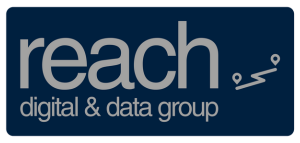In the dynamic digital transformation landscape, businesses are constantly seeking innovative ways to adapt and thrive. One of the critical aspects of ensuring these changes are implemented successfully is selecting the right delivery methodology. Other aspects of delivery operations to consider include people, tooling, and organisation philosophy, but this blog focuses on the methods.
Choosing the right “way of working” can be complex and daunting, but selecting the right approach will ensure you are equipped and set up for success. Each approach offers distinct advantages tailored to an organisation’s unique needs and goals.
Agile
Agile has become synonymous with flexibility and adaptability in software development. It emphasises iterative development, collaboration, and customer feedback. Applying Agile principles to digital transformation enables organisations to break down complex projects into manageable increments, allowing for faster value delivery and continuous improvement. Agile empowers teams to respond swiftly to changing market demands and customer preferences, fostering innovation and efficiency.
Waterfall
While Agile is celebrated for its flexibility, the Waterfall methodology follows a more sequential approach, with distinct phases such as requirements gathering, design, implementation, testing, and deployment. Although Waterfall may seem less adaptable than Agile, it can be suitable for well-defined digital transformation projects with stable and predictable requirements. Waterfall provides clear milestones and deliverables, making it easier to manage timelines and budgets.
DevOps
A combination of Development and Operations, emphasises collaboration between software developers and IT operations teams. It aims to automate and streamline the software delivery process, from code development to deployment and maintenance. DevOps accelerates digital transformation by fostering a culture of collaboration, continuous integration, and delivery. By breaking down silos and automating manual processes, organisations can achieve faster time-to-market and enhanced product quality.
Lean
This focuses on maximising customer value while minimising waste. It originated from manufacturing practices but has since been adapted to various industries, including software development and digital transformation. Lean principles emphasise eliminating non-value-added activities, optimising processes, and empowering teams to make data-driven decisions. By applying Lean methodologies, organisations can streamline their digital transformation initiatives, reduce costs, and enhance customer satisfaction.
Kanban
A visual management tool originating from the Toyota Production System, provides a visual representation of workflow, allowing teams to visualise work, limit work in progress, and optimise the flow of tasks. Kanban is particularly useful in digital transformation projects where priorities may shift frequently, enabling teams to adapt quickly to changing requirements. By visualising work and limiting multitasking, Kanban promotes efficiency and transparency across the organisation.
Scaled Agile Framework (SAFe)
For large enterprises undertaking complex digital transformation initiatives, SAFe offers a structured framework to scale Agile practices across multiple teams and departments. SAFe provides guidance on portfolio management, program execution, and team collaboration, enabling organisations to align business strategy with execution seamlessly. By adopting SAFe, enterprises can achieve greater agility, collaboration, and innovation at scale while managing dependencies and risks effectively.
In summary, the delivery methodology is a critical cog in the engine of digital, data or AI delivery, so seeking the right advice and selecting the most appropriate method is essential. Whether it’s embracing Agile for its adaptability, leveraging DevOps for automation and collaboration, or adopting Lean principles to minimise waste, each methodology offers unique benefits suited to different organisational contexts. By understanding the strengths and limitations of various methodologies, businesses can chart a course for successful digital transformation, driving innovation, and delivering value to customers in the digital age.




